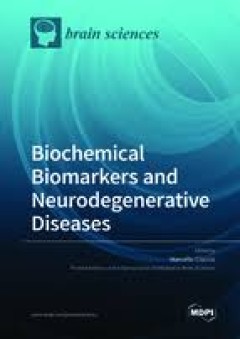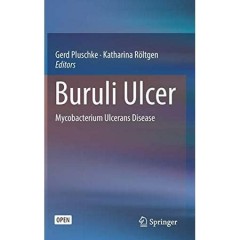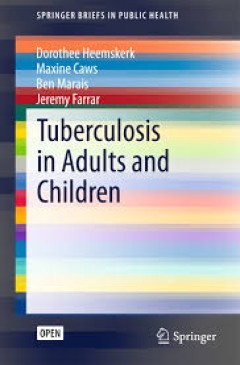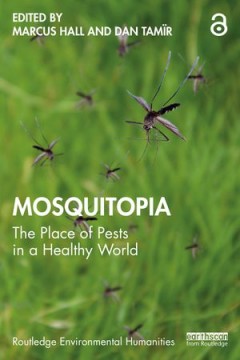Filter by

Biochemical Biomarkers and Neurodegenerative Diseases
Parkinson’s disease (PD) is a progressive neurodegenerative disorder, characterized by motor and non-motor symptoms due to the degeneration of the pars compacta of the substantia nigra (SNc) with dopaminergic denervation of the striatum. Although the diagnosis of PD is principally based on a clinical assessment, great efforts have been expended over the past two decades to evaluate reliab…
- Edition
- -
- ISBN/ISSN
- 9783036517223, 9783036517216
- Collation
- 156
- Series Title
- -
- Call Number
- -

Biocontrol via mycoviruses: a neglected option for bioprotection?
Virocontrol involves biocontrol of pathogens via hypovirulence-causing mycoviruses. This chapter discusses the characteristics of mycoviruses and the conditions that need to be met to make a successful virocontrol agent. The chapter describes one of the success stories so far, that of virocontrol of Cryphonectria parasitica, the chestnut blight pathogen. The chapter ends by reviewing future tre…
- Edition
- -
- ISBN/ISSN
- 9781801461481
- Collation
- 44
- Series Title
- Burleigh Dodds Series in Agricultural Science
- Call Number
- -

Advances in Metabolic Mechanisms of Aging and Its Related Diseases
Aging is a dynamic and irreversible physiological process, which leads to the progressive decline of biological functions involving all tissues and organs, due to a variety of endogenous and environmental factors. Metabolic changes are some of the hallmarks of aging and the alteration of metabolic pathways may accelerate the process and the onset of age-related diseases.
- Edition
- -
- ISBN/ISSN
- 9782889661824
- Collation
- -
- Series Title
- -
- Call Number
- -

Advances in Infectious Diseases and Clinical Microbiology during the COVID-19…
Background and Objectives: Aspirin (ASA) is a commonly used antithrombotic drug that has been demonstrated to reduce venous thromboembolism. The aim was to analyze if geriatric COVID-19 patients undergoing a 100 mg/day Aspirin (ASA) treatment prior to hospitalization differ in hospital outcome compared to patients without previous ASA therapy. Materials and Methods: An observational retrosp…
- Edition
- -
- ISBN/ISSN
- 9783036594682
- Collation
- 250
- Series Title
- -
- Call Number
- -

Buruli Ulcer = Mycobacterium Ulcerans Disease
A major objective of this open access book is to summarize the current status of Buruli Ulcer (BU) research for the first time. It will identify gaps in our knowledge, stimulate research and support control of the disease by providing insight into approaches for surveillance, diagnosis, and treatment of Buruli Ulcer. Book chapters will cover the history, epidemiology diagnosis, treatment and di…
- Edition
- 1
- ISBN/ISSN
- 9783030111144
- Collation
- X, 287 hlm; ill., lamp.,
- Series Title
- -
- Call Number
- -

Handbook of Pathogens and Diseases in Cephalopods
The aim of this open access book is to facilitate the identification and description of the different organs as well as pathogens and diseases affecting the most representative species of cephalopods focussed on Sepia officinalis, Loligo vulgaris and Octopus vulgaris. These species are valuable ‘morphotype’ models and belong to the taxonomic groups Sepioidea, Myopsida and Octopoda, which in…
- Edition
- 1
- ISBN/ISSN
- 9783030113308
- Collation
- XV, 230 ill; lamp
- Series Title
- -
- Call Number
- -

Tuberculosis in Adults and Children
This work contains updated and clinically relevant information about tuberculosis. It is aimed at providing a succinct overview of history and disease epidemiology, clinical presentation and the most recent scientific developments in the field of tuberculosis research, with an emphasis on diagnosis and treatment. It may serve as a practical resource for students, clinicians and researchers who…
- Edition
- -
- ISBN/ISSN
- 978-3-319-19132-4
- Collation
- VIII, 66
- Series Title
- SpringerBriefs in Public Health (BRIEFSPUBLIC, volume 2)
- Call Number
- -

Mosquitopia : The Place of Pests in a Healthy World
This edited volume brings together natural scientists, social scientists and humanists to assess if (or how) we may begin to coexist harmoniously with the mosquito. The mosquito is humanity’s deadliest animal, killing over a million people each year by transmitting malaria, yellow fever, Zika and several other diseases. Yet of the 3,500 species of mosquito on Earth, only a few dozen of them a…
- Edition
- -
- ISBN/ISSN
- 9781003056034
- Collation
- -
- Series Title
- -
- Call Number
- -

Trace metals and infectious diseases
Experts explore the influence of trace metals on the pathogenesis of infectious diseases.OCLC-licensed vendor bibliographic record.
- Edition
- -
- ISBN/ISSN
- 9780262327619
- Collation
- 1 online resource (xii, 488 pages) :illustrations.
- Series Title
- -
- Call Number
- -

Parasites, pathogens, and progress: Diseases and economic development
In this work, the authors combine biological and economic perspectives to suggest an innovative view of American history with implications for how we understand history as a whole.OCLC-licensed vendor bibliographic record.
- Edition
- -
- ISBN/ISSN
- 9780262298391
- Collation
- 1 online resource (viii, 343 pages) :illustrations
- Series Title
- -
- Call Number
- -
 Computer Science, Information & General Works
Computer Science, Information & General Works  Philosophy & Psychology
Philosophy & Psychology  Religion
Religion  Social Sciences
Social Sciences  Language
Language  Pure Science
Pure Science  Applied Sciences
Applied Sciences  Art & Recreation
Art & Recreation  Literature
Literature  History & Geography
History & Geography